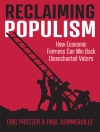By exploring the trajectories of Islamist parties in six diverse countries (Turkey, Morocco, Tunisia, Pakistan, Indonesia, and Malaysia), this book provides a comparative analysis of the strategies employed by Islamist groups to confront established political structures through electoral processes and their subsequent governance practices if and when they assume power. The latter aspect is less explored than the predominant focus on Islamist opposition movements.
The book analyses how these Islamist political parties navigate and negotiate with oppositional forces and establishments, concisely discussing the complex dynamics at play within each country.
The book also bridges the gap between North Africa, South Asia, Southeast Asia, and Asia Minor, providing a comparative analysis across regions.
Primarily serving as an introductory text to the subject of Islamist parties, the book functions as a comprehensive reader and handbook. Each chapter covers a range of key issues and themes relevant to the governance and political activities of the Islamist party of the country studied in the chapter, offering a general overview of Islamist party experiences across various themes and different historical periods.
Содержание
Chapter 1: Introduction: Islamist Parties Operating in Democracies.- Chapter 2: Islam and Politics in Democratic Muslim-Majority Countries.- Chapter 3: Seven Decades of Pas in Malaysian Politics.- Chapter 4: Pks in Indonesia’s Multiparty System.- Chapter 5: A Faithful Force: Jamaat-E-Islami and Islamist Politics in Pakistan.- Chapter 6: Islamist Pjd and the Monarchy in Morocco.- Chapter 7: Ennahda as Tunisia’s Muslim Democratic Party.- Chapter 8: Islamist Populist Akp and Turkey’s Shift Towards Authoritarianism.- Chapter 9: Trajectory of Islamist Parties.
Об авторе
Ihsan Yilmaz is a chair in Islamic Studies and research professor of political science and international relations at Deakin University’s ADI (Alfred Deakin Institute for Citizenship and Globalisation). Previously, he worked at the Universities of Oxford and London, demonstrating a strong track record of successfully leading multi-site international research projects. At Deakin, his projects have received funding from the Australian Research Council (ARC), Department of Veteran Affairs, Victorian Government, and Gerda Henkel Foundation.
Syaza Shukri is an associate professor at International Islamic University Malaysia doing research on political science. She is a visiting fellow at the ISEAS-Yusof Ishak Institute in Singapore and a non-resident research fellow at the European Centre for Populism Studies.












